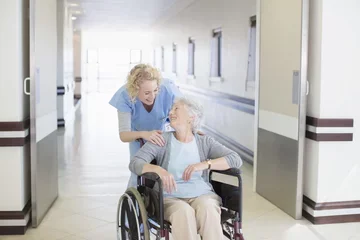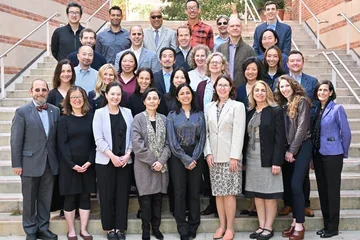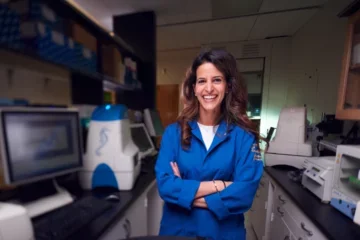UCLA Med School Mentorship Program for Four Years and Beyond
Big Sib and Little Sib
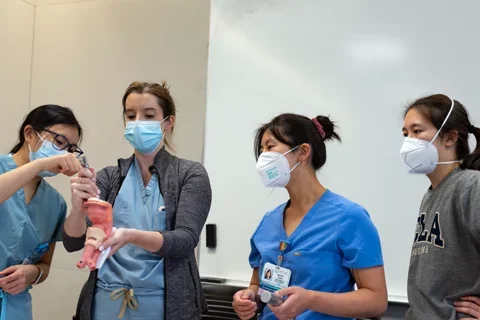
Developing Solid Relationships With Mentors Is an Important Part of a Healthy Career
In the David Geffen School of Medicine at UCLA, first-year medical students (MS1s) can forge those vital relationships within their first few weeks on campus thanks to the Big Sib-Little Sib student-mentorship program.
This peer-based organization encourages support and sharing among members of all four medical school classes. Participating MS1s are matched into peer "families," which consist of one or two medical students from each class (MS1-MS4). "Big Sib-Little Sib works because [David Geffen School of Medicine at UCLA] medical students are really good at giving advice and sharing resources," explains Alex Garrett, an MS2 and a Big Sib-Little Sib program coordinator.
Making Connections
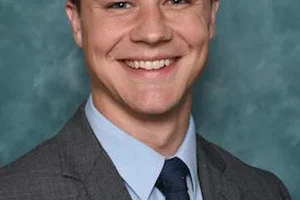
Shortly after arrival, MS1s receive an email invitation to join Big Sib-Little Sib that includes a survey to facilitate the matching process. "We request information about both personal and professional details so we can match people who might connect on an emotional level," Garrett says. "We ask things like: 'What specialty are you interested in?' [and] 'What do you like to do in your spare time?'"
Although the program's goal is to foster participation during all four years of medical school, students are most active in Big Sib-Little Sib during their first two years.
"In the preclinical years, you have more time," Garrett notes. "Participation by MS3s and MS4s is generally dictated by which clinical rotation they're doing. We know their schedules get very full." In previous years, the greatest number of participants has been MS1s. This year, for the first time in the club's five-year history, there are slightly more MS2s who wanted to be big sibs than there are MS1s. "We've assigned a few first years to two families," Garrett says. "I think the slight imbalance shows that people are having a good experience with Big Sibs-Little Sibs."
One Big, Happy Family
Garrett's Big Sib-Little Sib experiences helped the Maine native settle into Los Angeles life while opening his eyes to the value of a student-mentorship program.
"When I first got matched, we had a family meet-up. Meeting my big sib's own big sib gave me a sense of continuity," he says. "After that, my big sib always wanted to meet for sushi once a month. I always asked him first-year-related questions and got to hear a lot about what second-year life is like."
It's comforting that each Big Sib-Little Sib family decides how much or how little they wish to do together. "Many families like building their relationships via texting because it's so easy to check in with [one another] that way," he observes. "You make this program what you want it to be. It's another opportunity to find mentorship in an informal setting."
Organized Fun
The Big Sib-Little Sib program hosts three main activities per year, including a welcome-to-campus event. This year, Big Sib-Little Sib organized a school-wide dinner following Volunteer Day, when faculty, staff and students spent the day working at a local food bank. Additionally, there is a welcome-back event following the holiday break. Big Sib-Little Sib wraps up the school year by hosting a dinner following the DGSOM's annual talent show.
Last year, Big Sib-Little Sib hosted two photography contests. "We asked people to get together with their family and photograph themselves," Garrett says. "We included bonus points for pictures with family members from all four years."
What was the prize? It was a movie gift card to encourage them to spend more time with their families, of course.
